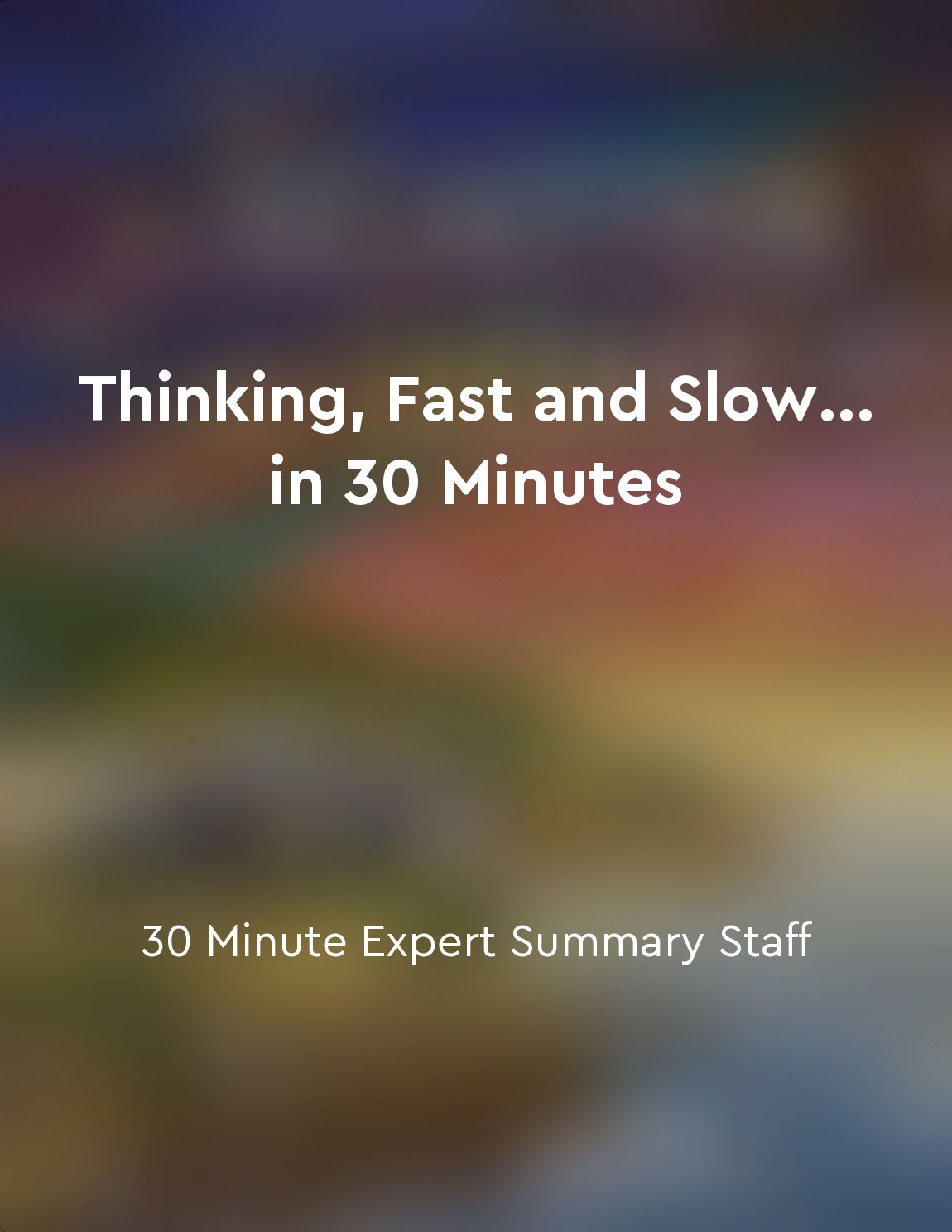Behavioral economics explores how psychological factors influence economic decisions from "summary" of Economics for Beginners by Andy Prentice,Lara Bryan
Behavioral economics delves into the intriguing ways in which our brains can sometimes lead us astray when making economic decisions. Traditional economics assumes that people are rational beings who make logical choices based on careful analysis of all available information. However, in reality, our decisions are often influenced by a myriad of psychological factors that can lead us to behave in ways that seem irrational or illogical. One of the key insights of behavioral economics is that human beings tend to rely on mental shortcuts, or what are known as "heuristics," when making decisions. These heuristics are often based on emotions, biases, or social norms rather than on a rational assessment of all the relevant information. For example, we may be influenced by peer pressure, our desire to conform to societal expectations, or our fear of missing out on a good deal. Another important concept in behavioral economics is the idea of "bounded rationality," which suggests that people have limited cognitive abilities and cannot always process all the available information when making decisions. As a result, we may resort to simplifying complex choices or relying on rules of thumb that may not always lead to the best outcomes. Moreover, behavioral economics examines the impact of cognitive biases on economic decision-making. These biases can distort our perception of reality and lead us to make decisions that are not in our best interests. For instance, we may exhibit overconfidence in our abilities, fall victim to the "confirmation bias" by seeking out information that confirms our pre-existing beliefs, or succumb to the "availability heuristic" by giving more weight to recent or vivid information.- Behavioral economics sheds light on the fascinating interplay between our psychological tendencies and our economic choices. By understanding how our minds work and how they can sometimes lead us astray, we can gain valuable insights into why we make the decisions we do and how we can improve our decision-making processes.
Similar Posts
Kenneth Arrow's contributions to economic theory earned him a Nobel Prize in Economics
Kenneth Arrow, a brilliant economist, made significant contributions to economic theory that ultimately earned him a Nobel Priz...
Utilize analytical tools
To enhance your critical thinking skills, it is essential to employ analytical tools. These tools can help you break down compl...

Monetary policy affects the money supply
Monetary policy plays a crucial role in regulating the money supply within an economy. By adjusting interest rates and influenc...
Social class can impact opportunities and outcomes
Social class is not just about how much money you have in your bank account. It goes much deeper than that. It influences every...

Cognitive ease affects preferences
When people make decisions, their choices can be influenced by the ease or difficulty of processing information. This concept i...

Real estate is a tangible investment
Real estate is a tangible investment because it involves the ownership of physical property. When individuals invest in real es...

Tax policy influences economic behavior
Tax policy can have a significant impact on the behavior of individuals and businesses within an economy. By adjusting tax rate...
Plan for emergencies
When it comes to managing your money, one of the most important things you can do is be prepared for the unexpected. Emergencie...
Financial innovation has revolutionized how we manage risk
Financial innovation has fundamentally transformed how we approach risk management. By creating new financial instruments and s...
The progressivity of tax systems can address income inequality
The concept of progressivity in tax systems is crucial when addressing income inequality. A progressive tax system is one in wh...

